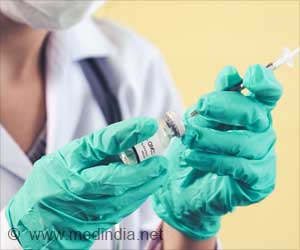Australian scientists are trying to figure out whether DNA damage is greater in children with autism than in children without the problem.
Australian scientists are trying to figure out whether DNA damage is greater in children with autism than in children without autism.
The University of South Australia’s Sansom Institute for Health Research, together with CSIRO Food and Nutritional Sciences and Flinders University, will also investigate whether certain vitamins and other nutrients can help treat some aspects of autism.Dr Manya Angley from the Sansom Institute’s Autism Research Group says United States researchers have shown that the folate/methionine metabolic pathway, which involves key chemical reactions in the body, is significantly different in many children with autism compared to non-autistic children.
“This pathway is involved in many key biochemical functions, especially maintenance of healthy DNA,” she said.
Professor Michael Fenech from CSIRO and University of South Australia says the study will be carried out in two parts.
“The first part aims to establish whether Australian children with autism have an abnormal folate-methionine pathway by looking at levels of certain chemicals in their blood and determining if there is a relationship with autism behaviour,” he said.
“The second part looks at whether giving supplements to correct the blood profile improves autism behaviours.
“Specific combinations of vitamins and other nutrients can potentially reverse DNA damage associated with normal ageing and neurological disorders such as Alzheimer’s disease, Parkinson’s disease and Down syndrome.
“We want to see whether DNA damage is elevated in autism and whether supplements are effective in treating some aspects of autism.” Dr Philip Thomas at CSIRO will be supervising the DNA damage aspects of the study.
The researchers are hopeful that the study may lead to better outcomes for individuals with autism. The ultimate aim is to develop personalised nutrition based on an individual’s own genetic makeup.
UniSA PhD student Penelope Main is currently seeking participants for the study. Ms Main says participating in the study has many benefits including free blood testing for nutrient status and psychological assessment with carers being given a comprehensive report.
“It is also an opportunity to help move Australian autism research forward,” said Ms Main.
Children and adolescents with a diagnosis of Autistic Disorder, their siblings and controls (without a family history of autism) are currently being recruited. Interested individuals should be aged under 15 years and not currently taking folate or sodium valproate (Epilim).
Those seeking further details on the study may contact Penelope Main on penelope.main@postgrads.unisa.edu.au
Source-Medindia
GPL












